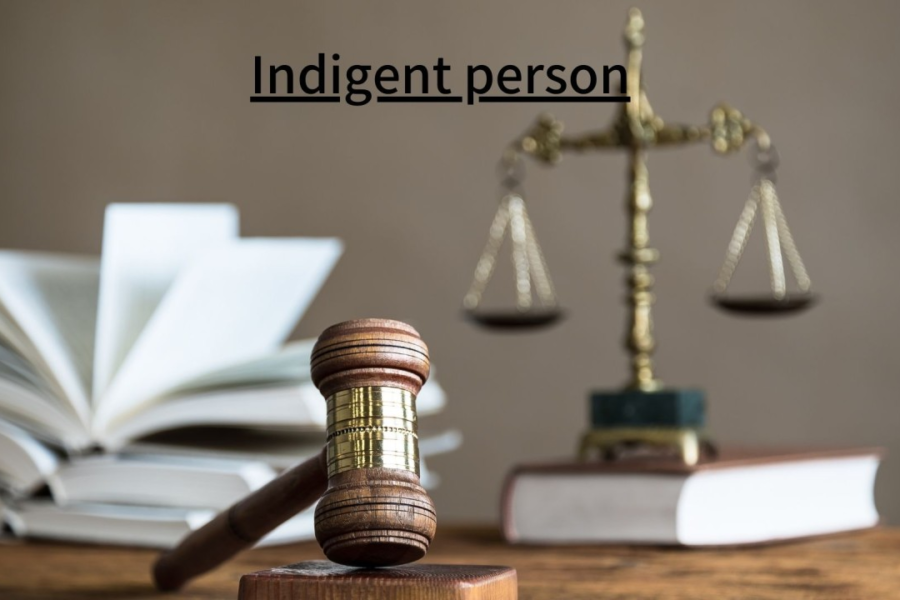~ALIFIYA HUSENBHAI KESHARIYA v. SIDDIQ ISMAIL SINDHI & ORS, 2024~
“The Supreme Court of India has permitted an indigent woman to appeal for increased compensation without the immediate requirement to pay court fees.”
Who is an indigent person?
When a civil suit is filed, the plaintiff(s) must pay the necessary court fees as mandated by the Court Fees Act of 1870. However, Order XXXIII of the Code of Civil Procedure provides relief for indigent individuals by exempting them from this fee requirement. This allows them to file the suit in forma pauperis, provided they meet the conditions outlined in Rule 1 of Order XXXIII of the CPC.
Procedure to file a suit as an indigent person:
Before filing a suit as an indigent person, it is crucial to include all relevant details in the application for permission to proceed in forma pauperis, as specified in Rule 2 of Order XXXIII. The application must contain particulars similar to those in the plaint, along with a list of all movable and immovable properties owned by the indigent person/applicant, including their estimated values.
The indigent person/applicant must present the application in person before the court. If the individual is exempt from appearing in court, an authorized agent can submit the application on their behalf. In cases where there are multiple plaintiffs, any one of them may present the application [Rule 3]. The suit is considered filed once the application to sue as an indigent person is properly submitted to the court. The court then examines the indigent person/applicant. If the applicant is represented by an agent, the court may examine the applicant via commission [Rule 4].
Background of the Case:
Alifiya Husenbhai Keshariya, the appellant, suffered serious injuries in a motor vehicle accident on July 4, 2010, while riding as a pillion on a bike that was hit by a truck. The accident resulted in extensive medical treatment and permanent disability, preventing her from working. Initially earning Rs. 3,000 per month, she claimed Rs. 10 lakhs in compensation from the Motor Accident Claims Tribunal in Jamnagar.
The Tribunal granted her an amount of Rs. 2,41,745 along with 9% interest from the date of the claim petition until the amount is fully paid. However, she was not satisfied with the compensation awarded and wanted to appeal the decision. Due to her financial condition, she couldn’t afford to pay the court fees upfront. Therefore, she filed a Miscellaneous Civil Application to be permitted to appeal as an indigent person.
On August 7, 2018, the Gujarat High Court rejected her application. The court noted that despite being awarded compensation, she could not be classified as indigent solely because she had not yet received the funds. The court emphasized that she must pay court fees before proceeding with her appeal.
Observation of the Court:
The Supreme Court, with Justices J.K. Maheshwari and Sanjay Karol presiding, allowed the appeal and examined whether a claimant who has been awarded but not yet received compensation can still be considered indigent.
Justice Karol emphasized that Orders XXXIII and XLIV underscore a clear intent: they illustrate the fundamental principle that financial constraints should not prevent individuals from seeking justice in court to uphold their rights. He stressed that ensuring effective access to justice can be viewed as the fundamental requirement, even considered a “basic human right,” within a legal system aimed at safeguarding rights.
The Court referred to significant legal precedents and principles. In Mathai M. Paikeday v. C.K. Antony (2011) 13 SCC 174, it was explained that an individual qualifies as indigent if paying court fees would leave them unable to meet basic living expenses. Similarly, in Union Bank of India v. Khader International Construction & Ors. (2001) 5 SCC 22, the Court clarified that provisions allowing suits by indigent persons are intended to delay the payment of court fees rather than exempting them entirely.
Furthermore, the judgment referenced State of Haryana v. Darshana Devi (1979) 2 SCC 236, emphasizing the fundamental right of economically disadvantaged individuals to access justice without the burden of court fees.
Representing the appellant, Ms. Rana, argued that her client had not yet received any part of the awarded compensation, thus her status as an indigent person remained unchanged. This argument played a key role in influencing the Court’s decision.
The Supreme Court found that the High Court’s demand for court fees was unwarranted since the appellant had not received the awarded sum. “Even though she had been awarded a sum, her indigency was not extinguished thereby,” noted Justice Karol. He emphasized that the statutory requirements under the Code of Civil Procedure were not met and that no proper inquiry had been conducted to determine her indigency.
As a result, the Supreme Court overturned the High Court’s order and permitted Alifiya Husenbhai Keshariya to file her appeal as an indigent person. Given the long duration since the original Tribunal award on October 17, 2016, the Court urged the High Court to expedite the hearing of the appeal, preferably within six months.
“This Court should not impose timelines for the disposal of cases, but considering the facts of this case… we request the High Court that the appeal filed by the claimant-appellant be decided expeditiously,” directed Justice Karol.
~Arisha Qureshi (Legal Intern)

